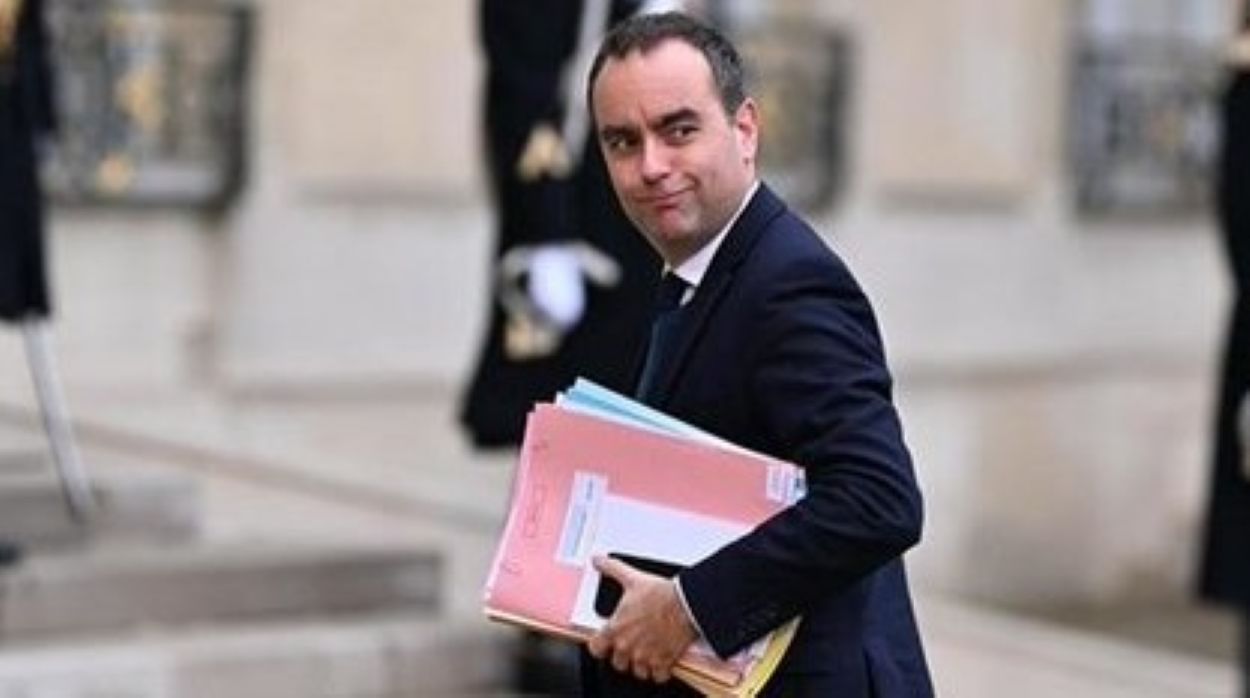Paris: French Prime Minister Sebastien Lecornu survived two no-confidence votes in the National Assembly on Thursday, securing crucial support from the Socialist Party after pledging to suspend President Emmanuel Macron’s controversial pension reform.
The motions, brought separately by the far-left France Unbowed and the far-right National Rally (RN), gained only 271 and 144 votes, far short of the 289 needed to topple the government. Lecornu’s government, just days old, narrowly avoided collapse in one of France’s most divisive political moments.
Lecornu’s decision to delay the pension reform until after the 2027 presidential election proved decisive. The move persuaded the Socialists to back him, giving his fragile coalition a temporary reprieve in an increasingly divided parliament.
French PM Sebastien Lecornu survived two no-confidence votes in parliament, winning crucial backing from the Socialist Party thanks to his pledge to suspend President Emmanuel Macron’s contested pension reform https://t.co/OsPrGVrTMU pic.twitter.com/vGAIHWVO73
— Reuters (@Reuters) October 16, 2025Despite the win, the results highlight the vulnerability of Macron’s administration midway through his final term. RN leader Jordan Bardella criticised the outcome, writing on X (formerly Twitter):
“A majority cobbled together through horse-trading managed to save their positions at the expense of the national interest.”
Following the votes, French bond markets remained stable, as investors had largely anticipated Lecornu’s survival. By offering to shelve the pension reform, Lecornu risks dismantling one of Macron’s core economic achievements. The reform, which raised France’s retirement age from 62 to 64, was aimed at addressing budget deficits but sparked months of mass protests.
Analysts warn that suspending the reform could weaken France’s fiscal position, leaving Macron with few domestic policy wins after eight years in office. If Lecornu had lost either motion, both he and his cabinet would have been forced to resign, likely triggering snap parliamentary elections and deepening France’s political crisis.
Une majorité de marchandage a réussi aujourd’hui à sauver ses places, au détriment de l’intérêt national.
Les grands absents de ces manœuvres d’appareils sont les Français, qui s’apprêtent à subir la boucherie sociale et fiscale d’un budget punitif.
Tous ceux qui ont ce jour…
— Jordan Bardella (@J_Bardella) October 16, 2025While Lecornu survived the confidence votes, he now faces tough negotiations over the 2026 national budget. The Socialists, emboldened by their leverage, are demanding the inclusion of a billionaire tax in the new budget. Yael Braun-Pivet, President of the National Assembly and a Macron ally, praised the government’s resilience:
“The French people need to know that we are working to deliver a responsible budget for the future of our country.”
Still, observers note that Lecornu’s margin for compromise is razor-thin. With only 265 lawmakers openly supporting his administration, even minor rebellions could destabilize his position. France remains mired in its worst political crisis in decades, as minority governments struggle to push deficit-reduction measures through a sharply polarized legislature divided into left, right, and centrist blocs.
Read: Macron Reappoints Sébastien Lecornu as France’s Prime Minister
Pension reform has long been politically toxic in France. The issue dates back to 1982, when Socialist President François Mitterrand lowered the retirement age from 65 to 60. Today, France’s average retirement age is 60.7, compared to the OECD average of 64.4. Macron’s reform aimed to align France with other EU economies, but it remains deeply unpopular among voters who view it as an attack on a cherished social benefit.






